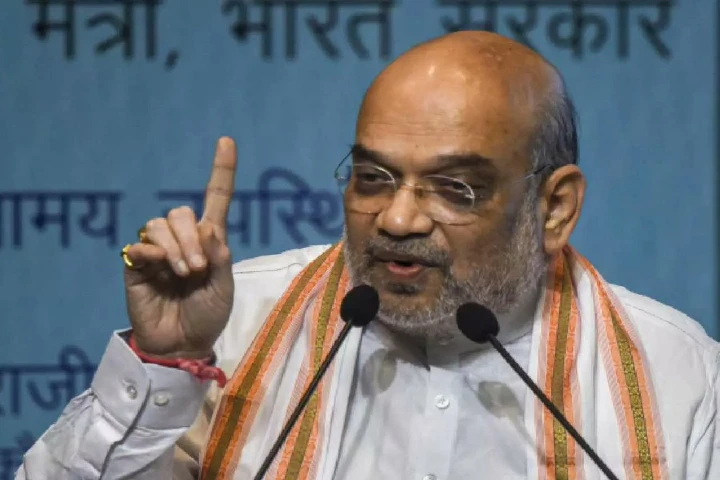

Within a month of the Union Home Minister Amit Shah’s commitment, the National Commission for Scheduled Tribes has supported the proposal for designation of the Pahari ethnic group as Scheduled Tribe in Jammu and Kashmir (Pic. Courtesy Twitter/@FeedmileApp)
Within a month of the Union Home Minister Amit Shah’s commitment at a public meeting in Jammu, the National Commission for Scheduled Tribes (NCST) has supported the proposal for designation of the Pahari ethnic group as Scheduled Tribe in the Union Territory of Jammu and Kashmir.
The Registrar General of India had recommended inclusion of Paharis, Paddari tribe, Koli and Gadda Brahman communities in the UT’s list of STs following Shah’s commitment at a public meeting in Jammu’s Rajouri district last month. The NCST has now cleared decks for designation of the four new groups as STs in Jammu and Kashmir. Shah had announced that the Pahari community would be granted ST status and thus reservation in education and government jobs on the pattern of the Gujjars.
Immediately after Shah’s return from his three-day visit to Jammu and Kashmir, the Union Ministry of Tribal Affairs had on 7 October sent a communication to the NCST, seeking its opinion on the proposal to include the four communities in the UT’s ST list. Sources said that after several meetings of the commission, the panel has cleared the proposal for their inclusion in its meeting held in New Delhi on 20 October.
“The commission has examined the proposal received from the Ministry of Tribal Affairs… The commission supports the proposal on the basis of the recommendation of the Office of the Registrar General of India [RGI],” the NCST said in a statement.
The suggestion for inclusion of the four new groups had come from the commission set up for the socially and educationally backward classes in J&K headed by Justice (Retd.) G.D. Sharma. The Delimitation Commission has earlier reserved six of the nine Assembly constituencies in the Pir Panjal valley –the Gujjar and Bakerwal dominated Rajouri, Poonch and Reasi districts of Jammu—for the STs.
While allaying the fears of the Gujjars and Bakerwals, who have already been designated as STs, Shah had announced that the two existing ST communities would not lose anything out of the incorporation of the Paharis. Under the procedure, the Union Cabinet has to confirm the incorporation once the NCST and the RGI have approved the proposal. Finally, the Union Ministry of Tribal Affairs will be required to bring a Bill in the Parliament seeking an amendment to the Constitution of (Jammu and Kashmir) Scheduled Tribes Order, 1989.
Following the passage of the Bill in both Houses of the Parliament, where the BJP currently has a clear majority, the designation of the four tribes will be finalised once the President of India notifies the revised schedule as empowered by Article 342 of the Constitution of India.
Currently 12 communities stand designated as STs in the UT of Jammu and Kashmir. With the proposed amendment—or by way of an ordinance which can be later confirmed by the Parliament—the total number of the tribes in the ST list would go up to 16.
Also Read: Amit Shah kicks off BJP’s poll campaign in J&K with ST status for 8 lakh Paharis
The Ministry of External Affairs (MEA) has taken note of the new guidelines issued by…
The Ministry of External Affairs on Thursday said India refused to sign the joint declaration…
The Ministry of External Affairs spokesperson Randhir Jaiswal said that India, so far have evacuated…
Axiom 4 mission aboard the SpaceX Dragon spacecraft successfully docked at the International Space Station…
In a significant moment for regional cinema and cultural dialogue, the premiere of 'Harmukh', the…
Union Home Minister Amit Shah on Thursday said that languages were not just a medium…